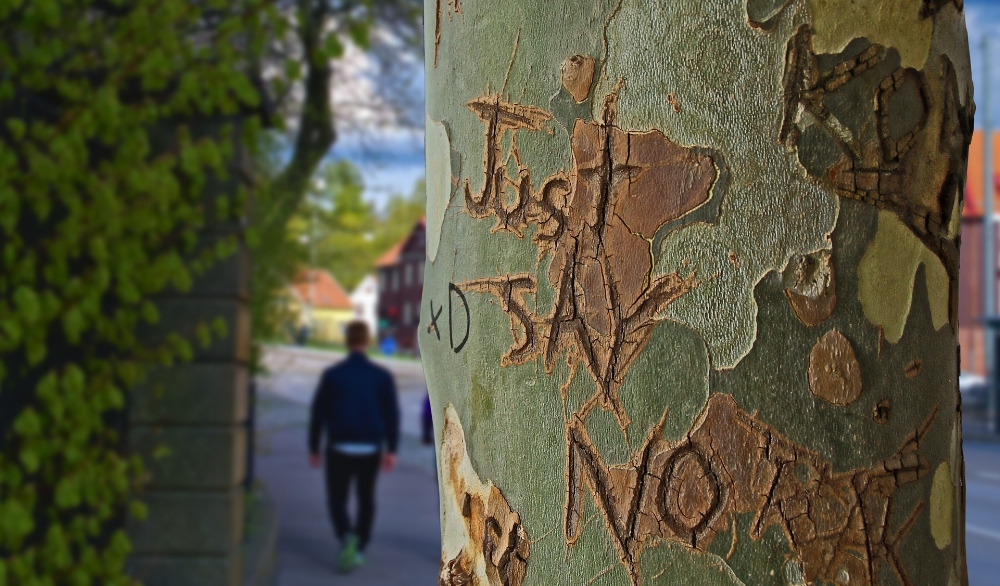As with anything else in life, it’s a lot easier for me to give my clients good guidance than it is to apply that guidance in my own life. Take the business of saying “no.” I’ve written before about the importance of choosing commitments carefully so that we don’t become over-committed, over-scheduled, overworked, and frazzled. As I put it in that earlier blog post, “saying yes to something means saying no to something else.” Yet I find the process of learning to choose my commitments wisely and say “no” more often is just that: a process of learning over and over from my mistakes.
I advise clients to evaluate requests for their time by first setting their own personal and professional priorities and then examining the new request in light of those priorities. If it won’t dovetail with your highest priorities, I advise them, think seriously about saying “no.”
When I retired from my college faculty job to grow my coaching business, focus on a couple of personal projects, and stop being over-committed, over-scheduled, overworked, and frazzled, a long-retired friend warned me that I would have to be careful in my first months after retirement. “People will make all kinds of requests for your time because they think you don’t have anything else to do,” she said, “and they won’t always take it well when you say ‘no.’” Her advice was that I not take on any new commitments that I didn’t initiate for six months or a year.
I should have listened to her. More than once in the eighteen months since I left my job, I have found myself facing a calendar packed with activities that don’t dovetail with my highest priorities for my personal or professional life. For example, I love to give talks. Engaging with an audience and sharing ideas and information is one of my favorite things to do, and I still get asked to give talks about American history. I believe that as a historian, I have some responsibility to share my knowledge about the past with people outside the classroom, so my first impulse is to accept most invitations to give talks. Folks have come to expect me to say “yes” to most of these commitments.
The problem is that even a simple talk is a big investment in time. I take my obligation to my audience seriously, so I usually spend the equivalent of two or three solid days preparing a talk. That’s time that I’m not investing in building my knowledge of coaching. It’s time I’m not available for my clients. It’s time I’m not spending with my husband or my cat or my friends or family. (If I were bolstering my income from these talks, it would be one thing, but even when I’m being paid, it’s rarely very much. Usually when I figure out my hourly rate for preparing and delivering a talk, it turns out I’ve made less than minimum wage. In short, the talks don’t dovetail with any of my goals—not even the goal of making a living.)
Twice in the last year, I agreed to give talks to local organizations, and I found myself at my computer toiling away over the talk and resenting every minute of it. Delivering the talks turned out to be fun, but the preparation was not. I begrudged the time it took from my other projects. I fumed that I was not following my own advice to align the way I spend my time with my priorities. To paraphrase an old proverb, I had to say, “coach, coach thyself.”
This fall, I once again got myself over-committed, over-scheduled, overworked, and frazzled. I was thinking about all this last month when I listened to television show runner Shonda Rimes’ excellent audiobook Year of Yes. (I recommend that book, especially the audiobook version read by Rimes herself. Get a preview of her fun, no-nonsense style in her TED talk here.)
One of the things Rimes said “yes” to was saying “no” to many of the demands on her—for time, money, or other scarce resources—when those requests didn’t align with her own priorities for herself. Rimes says that it’s important to say “no” to the idea that you can do everything and to say “yes” to play and “no” more to work more often. Most important, she says that it’s important to say “no” to other people’s expectations of you.
Just days after listening to Rimes, a fellow historian asked me to give a keynote talk for a workshop he was organizing. It’s a terrific project, and he’s doing a great job putting it together. (And unlike most of these requests, this one would have paid me more than minimum wage.) But when I read his invitation, my stomach twisted and a voice in my head said “NO!” Giving the talk would have involved all that preparation, and while it’s an interesting topic, one that I’ve taught about in the past, it’s not one I wanted to spend more time with. The time I would spend on this project would not advance any of my current professional priorities. Worst of all, it would tie me up in July which is a month when my husband and I often travel. I’d be saying “no” to play instead of work.
So I told my friend “no.” Obviously I feel a little guilty about that, or I wouldn’t be dwelling on it in this blog post. I think women are so often socialized to put everyone else’s priorities ahead of our own. I’m spending a lot of time on self-talk to remind myself that it’s ok to set my own priorities. Just like I tell my clients all the time, it’s ok to take Shonda Rimes’ advice and say yes to saying no.
What do you need to say “no” to today?

